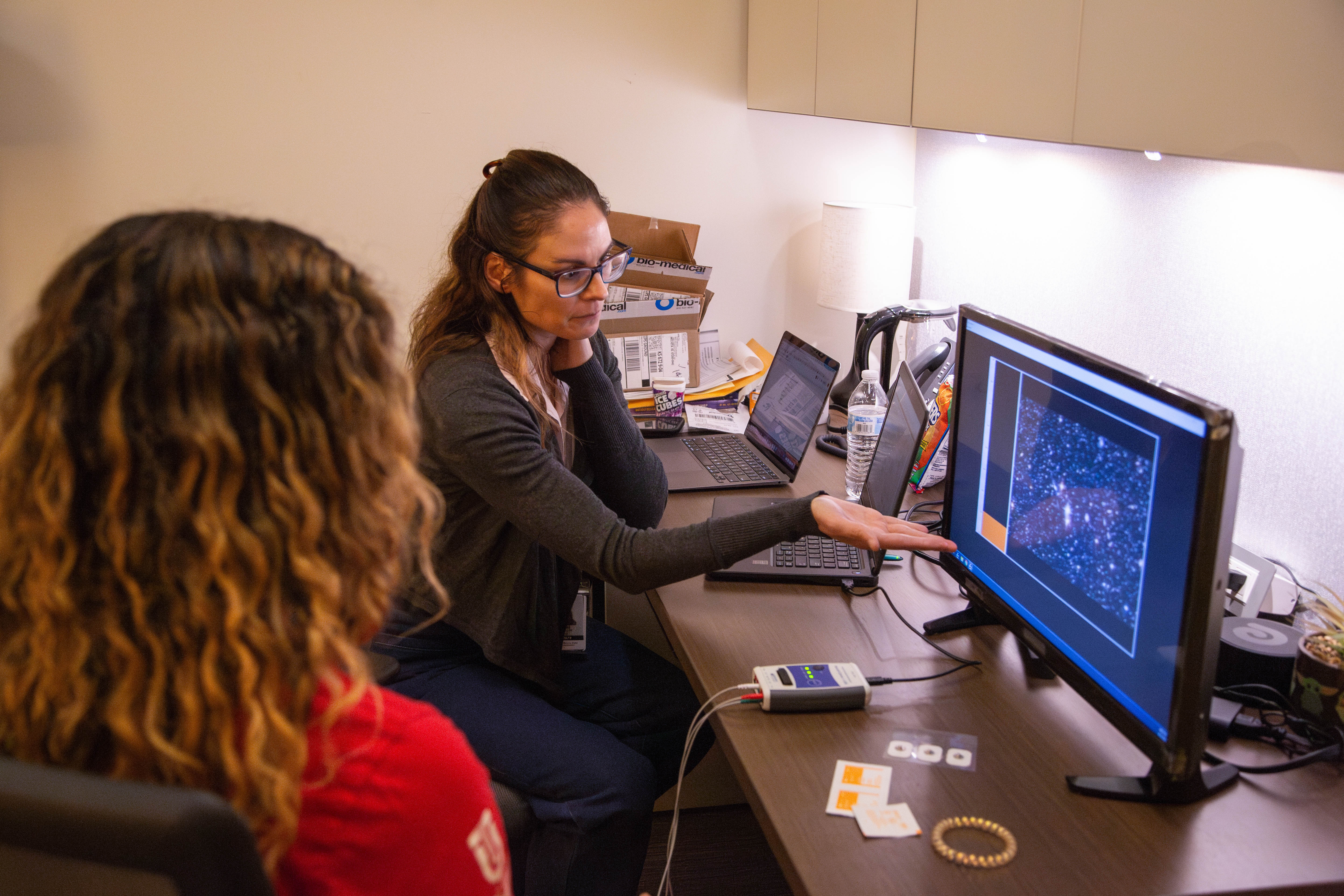
Research Project Summary:
The multidisciplinary research project, conducted by WSU's Intervention Services & Leadership in Education (ISLE) professors, Dr. Claire Gregory, Dr. Reagan Murnan, and Graduate Research Assistant Sara Ijaz, focuses on examining the impact of biofeedback training on stress reduction and self-regulation among special education teachers. A mixed methods approach will be employed to assess both objective and subjective indicators of stress during their practicum. Special education teachers enrolled in the study will receive heart rate variability biofeedback (HRVB) training utilizing advanced technology, enhancing their awareness of stress signs and equipping them with effective coping strategies. The effectiveness of HRVB in reducing stress will be evaluated by measuring psychological and physiological stress levels before and after the training. Qualitative data gathered from interviews and self-reflections will provide valuable insights into the experiences of the teachers. This innovative research aims to generate new knowledge, evaluate the intervention's effectiveness, and consider the perspectives and concerns of the teachers involved.
Timeline:
This project is scheduled to take place from May 1 to August 30. Baseline data collection occurred during the first two weeks of June, followed by the intervention sessions that took place from mid-June to the first week of July. The study will be concluded with interviews focusing on special education teachers' perceptions of stress and the impact of biofeedback training. The research team has successfully submitted two international conference proposals to present their findings. One proposal has been accepted by the International Society for Neuroregulation & Research for the upcoming August conference, while the other proposal has been accepted by the International Council for Learning Disabilities for the October conference. The research results anticipate being disseminated through publication in a professional journal this fall.
Goals:
The primary objective of this study is to achieve a comprehensive understanding of stress and self-regulation among special education teachers through the utilization of objective and subjective measures. The overarching goal is to analyze the data collected to gain insights into the current levels of stress experienced by special education teachers and to evaluate the impact of HRVB training in reducing stress and improving self-regulation. Additionally, qualitative interviews will be conducted to explore special education teachers' perceptions of stress and the influence of biofeedback training. The study employs a mixed methods design to address the following research questions: 1) What is the impact of biofeedback training on special education teachers' stress levels over time? 2) How do special education teachers perceive the effects of HRVB training on their stress? 3) Is there a functional relation between biofeedback training and the stress indicators observed among special education teachers? Through this research, valuable insights will be gained, informing the field and providing evidence-based knowledge for the development of effective interventions to support special education teachers in managing stress and promoting their well-being.
Intention:
The intent of this mixed methods study is to gain valuable insights into the existing stressors faced by special education teachers through self-reflection, interviews, and heart rate variability data. The anticipated outcome is to promote the adoption of biofeedback training and highlight the empowering effects of physiological regulation. By achieving these outcomes, the study aims to contribute to the field of special education by enhancing the preparation of teachers in effectively managing stress. Empowering special education teachers with stress regulation skills is crucial for enabling them to navigate professional challenges and effectively handle classroom stressors.
Innovative Approach:
The innovative nature of this project lies in the utilization of biofeedback training as a method for self-regulation, which is currently unique to WSU. This approach has the potential to make significant contributions to recruitment and retention efforts. Compared to other universities, WSU is one of only two public universities that house a bio/neurofeedback program within its counseling department. The initial grant funding and subsequent research stemming from this project are expected to lay the groundwork for securing external funding to expand bio/neurofeedback resources, interdisciplinary research collaborations, and clinical services. WSU, known for its leadership in applied learning, has the opportunity to incorporate biofeedback training into microteaching and coaching programs already in place within special education and counselor education. This hands-on and authentic approach to professional development aligns with the principles of effective teacher and counselor training, fostering active participation and integration of skills into daily professional practice. Furthermore, the project's use of a mixed methods study design, encompassing single-case experimental and qualitative case study methodologies, not only generates new knowledge but also evaluates the intervention's effectiveness while addressing the concerns and insights of those involved.

